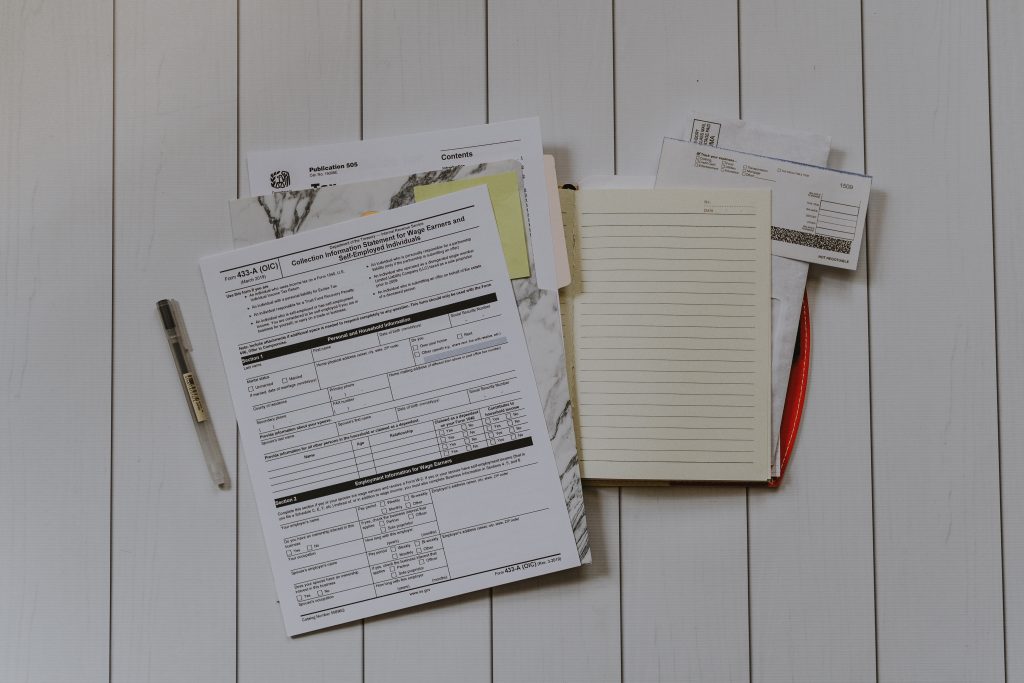The Difference Between a Bookkeeper and an Accountant

Although these two professions have many similarities in their goals and objectives, the job role of a bookkeeper and accountant are different. Having worked for a variety of companies and entrepreneurs, I discovered that it was something that they found really unclear. I have often seen these two terms being used interchangeably which, if I am honest, scares me a little. Despite the fact that both professions are incredibly important, their differences are crucial to understanding as a business owner. I have seen circumstances where bookkeepers have taken on some of the roles of an accountant within a business or company due to budgeting or employee shortages which can cloud people’s judgment and understanding of each role’s individual duties and responsibilities.
As a bookkeeper, I believe that it is my job to help my clients understand the difference between a bookkeeper and an accountant as this knowledge can contribute to financial and business success.
What Does a Bookkeeper Do?
Bookkeepers have the vital duty of managing the day to day finances of your business. We can view this position as an administrative role that requires daily recording and inputting. Even small businesses will have a considerable amount of payments and transactions that need to be correctly recorded. We all know the dreaded feeling of year-end approaching. Efficient and proactive business owners will ensure that everything is in order in advance to avoid any issues and unnecessary stress.
Often, when a small business owner is starting out, they may choose to wear many hats within their business, including the bookkeeper. This decision is understandable as it can reduce costs in the initial stages. However, I cannot stress enough how vital it is to invest in this essential service as early as possible. There are areas of business that owners can cut costs on, finances is certainly not one of them. What may seem like a smart economic decision, can quickly backfire and end up costing you more money in the long run. The IRS isn’t exactly known for its understanding and compassion.
Let’s take a look at the day-to-day tasks that any experience bookkeeper would undertake for a typical business:
1. Managing and maintaining the company financial ledger
This master spreadsheet records every transaction within the company. Each debit and credit is documented and it is the role of the bookkeeper to ensure that it balances.
2. Payroll for employees
Payroll can get tedious very quickly. Therefore, whether you have full-time, part-time, or freelance workers on your books, you must be aware of exactly which deductions you need to make for each, as well as understanding the correct forms to use.
3. Daily recording of all transactions
We all know that running a business can be unpredictable and that there never seems to be enough hours in the day. A bookkeeper will ensure that there is a dedicated person keeping a close eye on all daily transactions so that you don’t have to.
4. Accounts Payable
One common duty for a bookkeeper is to guarantee that all bills are paid on time. A concern for some business owners is that they will lose control of what payments are going to be made each week. Bookkeepers are able to initiate payments that are due but you have the final say on all payments out by confirming the payments before they are sent.
5. Accounts Receivable
Chasing payment is NEVER fun and can be incredibly time-consuming. Regardless, it is without a doubt one of the most important tasks in a business. Not only do you need to ensure that your customers and clients are paying, but you also need to make sure that all invoices have been sent out in the first place.
6. Account Reconciliation
For such an important task, I see so many businesses overlooking account reconciliation. I get it, it’s arduous and time-consuming. Failing to reconcile your bank and credit card statements could be costing you a lot of money. Without keeping a close eye on transactions coming in and out of your account, you’ll have no idea if payments due are being received and that all payments going out are valid.
7. Back Logging
If you’ve been trying to manage your finances solely up to this point, I can almost guarantee that you have a dusty box or two of invoices, receipts, and payments. Bookkeepers can take all of that information and backlog it so that all of your accounts are up to date. Doing this can help put your best foot forward for future years of business.

What Does an Accountant Do?
An accountant takes all of the financial information and interprets it to evaluate the financial position of a company. Without the bookkeeper’s records of the business at the ground level, it would be next to impossible for an accountant to create a financial statement of the business. Here are a couple of main responsibilities for an accountant that differ from the duties of a bookkeeper:
- Accountants must be certified and licensed. They cannot offer their services without this.
- Accountants will file their tax returns based on the information provided by a bookkeeper.
- They will use this information to provide an analysis of the business to give their professional opinion on all financial decisions.
- They will prepare financial statements.
Final Thoughts
Both bookkeepers and accountants play crucial roles in the success of a business. Therefore, understanding their duties and responsibilities can help you to make the correct decision when deciding to hire help. As business owners, it can be difficult to let go of certain tasks within the business. However, in order for you to generate more business and continue to grow, there is no doubt that outsourcing is necessary.
Investing early in financial help will SAVE you money in the long run. Not only that, it will give you a sense of security and relief knowing that your business is compliant and up to date.
To find out more about bookkeeping services, don’t hesitate to contact Star Taxes and Books to discuss your needs.


